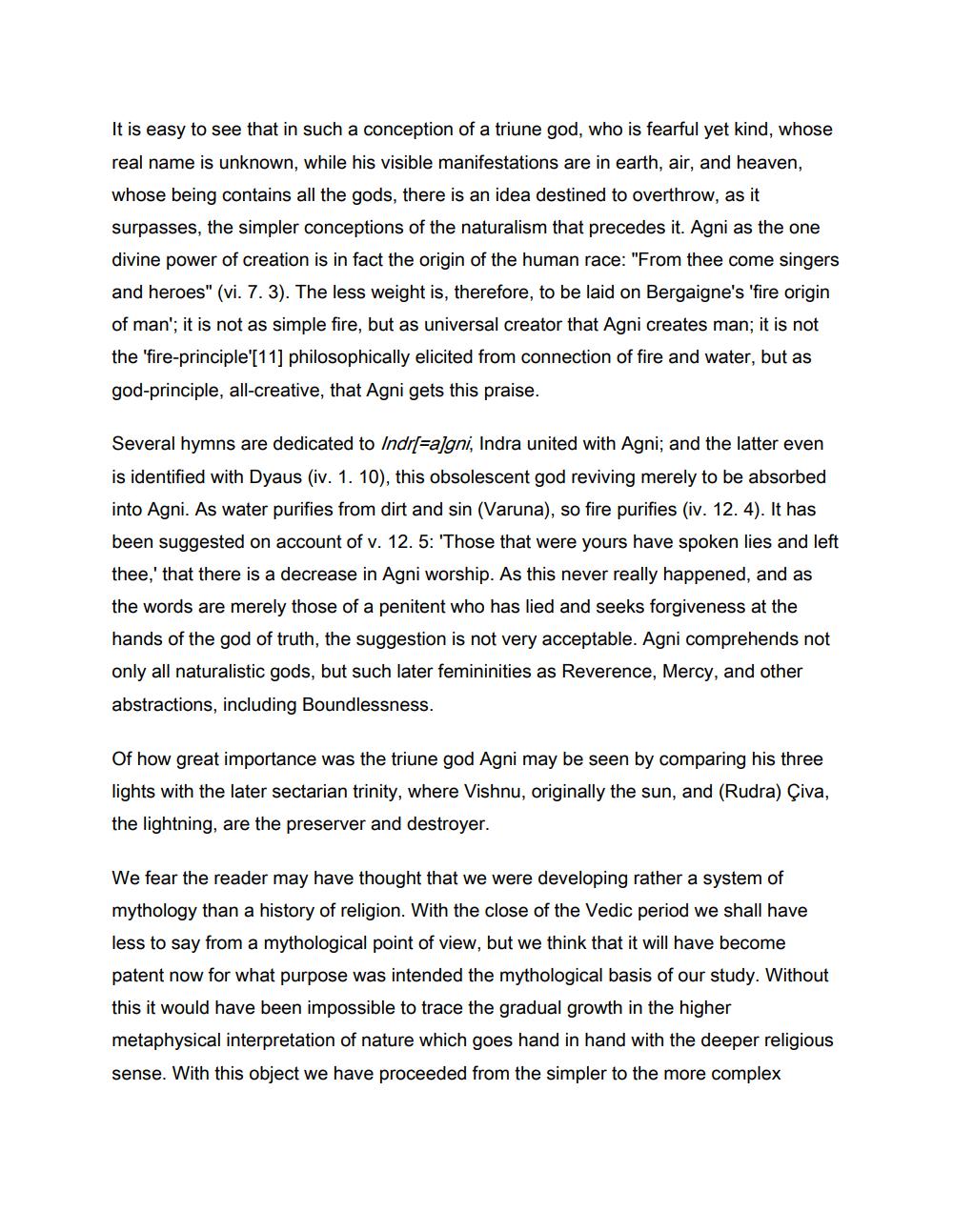________________
It is easy to see that in such a conception of a triune god, who is fearful yet kind, whose real name is unknown, while his visible manifestations are in earth, air, and heaven, whose being contains all the gods, there is an idea destined to overthrow, as it surpasses, the simpler conceptions of the naturalism that precedes it. Agni as the one divine power of creation is in fact the origin of the human race: "From thee come singers and heroes" (vi. 7.3). The less weight is, therefore, to be laid on Bergaigne's 'fire origin of man'; it is not as simple fire, but as universal creator that Agni creates man; it is not the 'fire-principle'[11] philosophically elicited from connection of fire and water, but as god-principle, all-creative, that Agni gets this praise.
Several hymns are dedicated to Indr[ra]gni, Indra united with Agni; and the latter even is identified with Dyaus (iv. 1. 10), this obsolescent god reviving merely to be absorbed into Agni. As water purifies from dirt and sin (Varuna), so fire purifies (iv. 12. 4). It has been suggested on account of v. 12. 5: 'Those that were yours have spoken lies and left thee,' that there is a decrease in Agni worship. As this never really happened, and as the words are merely those of a penitent who has lied and seeks forgiveness at the hands of the god of truth, the suggestion is not very acceptable. Agni comprehends not only all naturalistic gods, but such later femininities as Reverence, Mercy, and other abstractions, including Boundlessness.
Of how great importance was the triune god Agni may be seen by comparing his three lights with the later sectarian trinity, where Vishnu, originally the sun, and (Rudra) Çiva, the lightning, are the preserver and destroyer.
We fear the reader may have thought that we were developing rather a system of mythology than a history of religion. With the close of the Vedic period we shall have less to say from a mythological point of view, but we think that it will have become patent now for what purpose was intended the mythological basis of our study. Without this it would have been impossible to trace the gradual growth in the higher metaphysical interpretation of nature which goes hand in hand with the deeper religious sense. With this object we have proceeded from the simpler to the more complex




